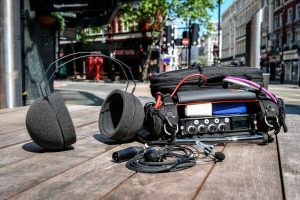
A Lasting Voice for Stories
Storytelling has always been a way for people to share experiences, reflect on personal journeys, and connect with others. In the digital age, why personal blogs are a powerful way to tell stories becomes clear—they offer one of the most effective platforms to bring narratives to life. Unlike social media posts that come and go, blogs provide a lasting space where thoughts, ideas, and emotions can be expressed in depth.
For writers, creatives, and everyday individuals, personal blogs provide a platform to document life events, share knowledge, and build meaningful connections. They allow for authenticity and individuality in ways that traditional media often cannot. Whether someone is chronicling their travels, reflecting on personal growth, or sharing family history, a personal blog transforms everyday experiences into compelling narratives that resonate with readers.
This article explores the reasons why personal blogs are such a powerful storytelling tool. From creating a digital legacy to forming genuine connections with an audience, blogging continues to be a meaningful way to share stories with the world.
A Space for Authentic Expression
Personal blogs offer a freedom that few other platforms provide. Writers can share their thoughts, experiences, and emotions without the constraints of word limits or algorithm-driven visibility. Unlike social media, where trends dictate engagement, blogs allow individuals to tell stories in their own time and on their own terms.
For many people, writing a blog feels similar to keeping a public journal; however, it goes beyond simply recording daily events. It becomes a space to document life’s highs and lows, reflect on personal experiences, and, as a result, develop a deeper understanding of one’s journey. Moreover, this form of storytelling encourages self-expression and promotes vulnerability, which, in turn, creates more authentic and impactful narratives that resonate with readers.
When people read a personal blog, they aren’t just skimming through updates; they are stepping into someone’s world. This authenticity strengthens the writer-reader relationship, making blogs one of the most personal and engaging ways to share stories online.
Building a Lasting Digital Legacy
Stories passed down through generations often fade, but personal blogs provide a way to preserve memories for years to come. Unlike fleeting social media posts, blog content remains accessible and searchable long after it is published. This makes blogs a powerful tool for creating a lasting record of experiences, ideas, and emotions.
Families can use blogging to document their history in meaningful ways. Parents write about their children’s milestones, and individuals reflect on personal growth, capturing moments that future generations can revisit. Many people also share stories of loved ones through personal blogs, keeping their voices and experiences alive for years to come.
By consistently adding to a blog, writers create a rich archive of their lives. Over time, these stories form a collection of moments that might otherwise be lost, making personal blogs an invaluable storytelling resource.
Connecting with Like-Minded Readers
Personal blogs often attract an audience of people who relate to the writer’s experiences. Whether someone is writing about travel, parenthood, mental health, or a specific hobby, blogging creates a sense of community. Readers who resonate with a blogger’s journey may comment, share their own experiences, or even form friendships through these connections.
Unlike social media, where content is often driven by fleeting interactions, blogs foster deeper discussions. Readers engage with long-form content, leaving thoughtful responses and contributing to meaningful conversations. Many bloggers find that their audience becomes a support system, encouraging them to keep writing and sharing.
Storytelling is about more than just writing—it’s about forming connections. Personal blogs make this possible by giving writers and readers a space to engage with one another in a more thoughtful and lasting way.
Encouraging Creative Growth
Maintaining a personal blog significantly helps writers develop their storytelling skills, and, moreover, it offers continuous opportunities for growth. By writing regularly, bloggers gradually refine their ability to structure narratives, express emotions, and craft compelling content. As time passes, they not only become more confident in their writing but also gain valuable insights into what resonates with their audience. Consequently, they learn how to communicate ideas more effectively, creating stories that engage and connect with readers on a deeper level.
Many professional writers and journalists started with personal blogs. This format allows for experimentation with different styles, tones, and topics without the pressure of formal publishing. For aspiring authors, a blog can serve as a portfolio that showcases their work and attracts potential publishers or collaborators.
Beyond writing, blogging also introduces creative elements such as photography, graphic design, and multimedia storytelling. Many bloggers incorporate images, videos, and audio recordings to bring their stories to life, making personal blogs a versatile and evolving storytelling medium.
The Flexibility to Tell Stories in Many Forms
A personal blog isn’t limited to one storytelling style. Writers can explore different formats, from traditional narrative essays to interactive storytelling using multimedia. Some bloggers use diary-style posts to reflect on daily life, while others write in-depth guides, interviews, or fictional stories that captivate their readers.
This flexibility allows bloggers to evolve their storytelling techniques over time. A travel blogger might start by documenting their trips with text but later incorporate videos and photo essays. A memoir writer might begin with chronological storytelling but later shift to themed reflections on life experiences.
The ability to experiment and grow makes blogging a powerful creative outlet. Writers are not confined to rigid publishing rules, allowing them to shape their content in ways that best suit their voice and message.
Blogs as a Platform for Advocacy and Change
Many people use personal blogs as a way to raise awareness about important issues. From mental health advocacy to social justice storytelling, blogs provide a space for individuals to share personal perspectives on topics that matter to them.
A well-written blog post can spark conversations, challenge societal norms, and inspire action. Many social movements have gained momentum through personal storytelling, as readers connect deeply with real-life experiences. By sharing their own struggles, victories, and insights, bloggers contribute to larger discussions that shape public understanding and influence change.
Personal blogs give people a voice, allowing them to amplify messages that might otherwise go unheard. This ability to inform and inspire makes them a vital part of digital storytelling.
A Journey That Evolves Over Time
One of the most rewarding aspects of keeping a personal blog is watching it grow over time. Writers can look back on their earliest posts and see how their perspectives, writing style, and life experiences have changed.
Unlike other forms of content creation, which often prioritize fast-moving trends, blogging allows for gradual, meaningful storytelling. Readers who follow a blog for years become part of the writer’s journey, witnessing their growth and transformation through each post.
This long-term engagement makes blogging deeply personal and fulfilling. A blog isn’t just a collection of posts—it’s an evolving story that reflects the writer’s journey in a way no other platform can.
Keeping Stories Alive Through Blogging
Personal blogs remain one of the most powerful ways to tell stories, connect with others, and document life’s moments. Why personal blogs are a powerful way to tell stories becomes evident when you see how they allow people to share passions, preserve memories, and engage with communities in authentic and lasting ways. The impact of personal storytelling through blogging is undeniable.
With the freedom to express, the ability to build lasting connections, and the opportunity to grow creatively, blogging continues to shape how people share their lives and experiences. The stories we tell today may become part of someone else’s inspiration tomorrow, making personal blogs a meaningful and lasting storytelling tool.

